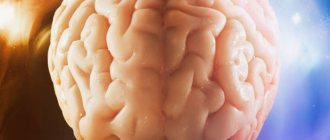This article can not only be read, but also listened to. If it's more convenient for you, turn on the podcast.
Everyone has periods when even simple everyday tasks - washing dishes, doing mail, playing with a child - become a burden. What can we say about complex projects, creativity and new beginnings. In this case, psychologists say that the person has left the mental resource state - that is, he has ceased to feel stable, full, and rested.
This can happen due to illness or extreme fatigue, failures at work and conflicts with loved ones, tragic events, age-related and personality crises, and so on. Weakness and apathy may disappear after a person has rested, or they may turn out to be symptoms of incipient depression and a reason to consult a psychotherapist. Let's figure out what you should do to help yourself.
Main symptoms
Low mood, general weakness and apathy are symptoms that speak not only of general fatigue. Sometimes this is a sign of a depressive disorder or a general disease that depresses the body and nervous system.
Weakness and constant fatigue
Often, out of ignorance, apathy is called laziness. Relatives do not notice the emotional changes happening to the person, but only scold him for negligence and inaction.
A state where you don’t want anything, constant fatigue and weakness can occur due to increased stress at home and at work, as well as previous colds, surgeries and chronic pathologies.
Drowsiness
The inability to get enough sleep, no matter how long the sleep lasts, is a sign that can be observed in the following conditions:
- severe mental or physical fatigue (exams, emergency work at work, long travel, stress in the gym);
- prolonged exposure to a stress factor or acute painful situation;
- metabolic disease;
- action of infectious agents;
- medicines;
- hypovitaminosis;
- failure of sleep and wakefulness;
- lack of oxygen and elevated temperature.
Apathy is a state of indifference
Fatigue
Fatigue from the slightest physical or mental work may indicate improper functioning of the nervous system, that is, neurosis or depression. But before starting treatment, you need to undergo an examination to find out the condition of the internal organs, hormone levels and immune status.
No energy
If there is no energy for life and it is difficult to carry out responsibilities that were previously within your capabilities, then it is worth looking for the reason. People living in big cities are more often susceptible to this condition, but this should not be attributed solely to the environment. You should analyze your daily routine, stress level and undergo examination by doctors.
No desires
A state of indifference, when the mood is low and you don’t want anything, is observed in depression. You should not put off going to a specialist, since apathy can be a companion to other mental and neurological disorders:
- schizophrenia;
- Alzheimer's disease;
- dementia;
- organic brain lesions;
- cerebral ischemia.
However, a situation where there is no desire to do something can also occur in healthy, mentally adequate people. This is due to behavioral aspects, worries about loved ones, age-related changes, and a decrease in social interactions.
Manifestation of apathy
Praise yourself
In Abraham Maslow's A Theory of Human Motivation pyramid of needs, one of the top tiers is the need for respect and recognition. For a person to feel good, it is very important to know that he is valued and that his deeds are important and meaningful. From school, if not from kindergarten, we get used to expecting praise from other people, and not from ourselves.
And we consider achievements only what can be measured, evaluated and presented to others - a promotion at work, buying a car, receiving a diploma. But many, at first glance, small steps that make up our path to great success remain unnoticed.
John Croft, an ecologist who spent many years studying the life and philosophy of the Australian Aborigines, together with his colleagues came up with Dragon dreaming - a method of planning personal and corporate projects. He believes that there should be four processes in life - dreaming, planning, doing and celebrating. And without the last thing - celebration - the cycle remains incomplete, we do not feel pleasure and recognition.
Any steps - even those that seem tiny to us - are worth celebrating, not devaluing.
Preparing a delicious and balanced lunch may seem like a piece of cake at first glance. But if you take a closer look, this is one of the elements that makes up the health of the whole family. Half a page of text might seem like very little, but at this rate you can write a whole book in a year.
For those who are tired, confused and unsure of themselves, it is especially important to celebrate achievements - both big and small, everyday. As an option, keep a success diary and write down at least five things every day for which you can praise yourself. Even what we are used to not noticing is counted - routine household chores and work tasks.
This practice will help you feel important and find a source of recognition and praise within yourself, rather than expecting it from other people. And of course, no one is stopping you from pampering yourself with entertainment and pleasant purchases, or making it a rule to regularly celebrate successes with your family or friends.
Causes of laziness in women
Constant apathy and fatigue in a woman is unlikely to occur just like that. The body is a complex system in which any failure will entail changes in the emotional sphere.
Causes of apathy, weakness, drowsiness, fatigue in women:
- stress and anxiety;
- stress at work and at home without proper rest;
- neurosis;
- depression;
- alcoholism;
- taking certain medications (neuroleptics, antidepressants, hormones);
- diseases of the nervous system (stroke, tumors, injuries);
- hormonal imbalance;
- pregnancy;
- PMS;
- past infectious processes;
- anemia;
- oncopathology;
- diseases of the heart and blood vessels.
The listed reasons lead to the appearance of symptoms of apathy, which, if no action is taken and if the current level of stress does not change, progresses.
Apathy manifests itself due to emotional, mental and physical exhaustion
Proper nutrition and exercise are excellent cures for apathy
It is also recommended to keep yourself in good physical shape. Blood circulation in the brain affects mental activity. In addition to the sports activities that need to be carried out to keep the body in shape, special attention should be paid to nutrition.
It is necessary that a person’s menu includes products that are filled with useful microelements and vitamins. You shouldn't give up eating to work. The ideal option would be a full lunch and a walk in the fresh air. It is necessary to monitor your health. You should not bring yourself to a state from which you can only get out of it with the use of special medications. It is better to prevent painful conditions through the preventative methods discussed above.
Why doesn't a man want anything?
A man may also experience apathy. He can often react incorrectly to weakness and decreased mood and does not consult a doctor. Trying to fight it on his own, a man, as a representative of the stronger sex, ignores the symptoms, which leads to aggravation of the process. In this case, loved ones should be especially attentive and persistent.
The main causes of apathy, weakness, drowsiness, and fatigue in men include:
- negative experiences;
- overwork;
- difficulties in self-realization;
- distress;
- neurotic and depressive disorders;
- alcoholism and substance abuse;
- mental illness;
- sexual dysfunction;
- heart diseases;
- infections;
- endocrine pathologies;
- tumors.
Apathy may be a consequence of somatic problems. Instead of thinking why a man doesn’t want anything, he should go to the clinic for a full examination.
Apathetic depression. What kind of illness is this?
These concepts complement each other. At first, a person becomes depressed. Over time, it can turn into apathy. Then you don’t want anything, you have no strength at all. Therefore, when signs of depression appear, you should not treat them superficially; it is recommended to take all necessary measures to get out of this state.
A healthy lifestyle and proper nutrition will provide a person with a good mood. You need to learn to live life to the fullest and not give in to despondency. In addition, it should be remembered that the latter is considered a sin, therefore, even from the point of view of religion, one should not allow such a state in oneself.
Treatment
The reasons for indifference to everything are the key to solving the problem. In most cases, it is enough to normalize your lifestyle, and you don’t always need to immediately grab pills. If treatment is required, then in any case it should be comprehensive, including psychological relief, sports and medications.
If you can’t cope on your own, consult a doctor.
How to fight on your own
Both women and men can fight apathy on their own only after identifying its cause and consulting with specialists (cardiologist, gastroenterologist, psychotherapist and others).
The main thing is to normalize your lifestyle. Everyone knows about this, but not everyone follows this rule. Adequate sleep, a balanced set of foods, fresh air, vitamins, rest, light sports - all this will help overcome a negative state in a healthy person.
Advice from psychologists to improve your mood
If you don’t want anything and the doctor has diagnosed “depression” or talks about neurosis, then it’s worth doing psychocorrection. The help of a specialist will be useful here.
Psychologists give traditional advice on how to cope with apathy and what to do if you don’t feel like doing anything. First of all, you need to learn to think positively, which includes:
- transforming negative phrases about yourself and your health into positive ones;
- fixation on pleasant experiences from the past, joyful emotions that make you smile;
- thoughts about a good future.
An important piece of advice that psychologists give to their visitors is the practice of breathing exercises, which may include the following techniques:
- breathing in a square;
- counting breathing (exhalation is twice as long as inhalation);
- belly breathing;
- deep diaphragmatic breathing.
Diaphragmatic breathing technique
A person who does not know what to do in a state of apathy will also find the following tips useful:
- compliance with the usual pleasant rituals (morning coffee, evening walk, family celebrations);
- discussing your concerns with a loved one or professional;
- aromatherapy practice;
- muscle relaxation;
- meditative practices;
- carrying out water procedures (baths, swimming pool, circular shower, sauna);
- hobbies;
- rejection of bad habits.
To normalize the condition, it is important to maintain a balance between work and rest.
Drugs
Treatment of apathy with drugs should be under medical supervision. Medicines are used from different groups (antidepressants, anxiolytics, mood stabilizers, hormones, stimulants, nootropics, herbal, restorative, vascular and other drugs). It all depends on the cause of the apathetic state.
Forget about magic kickoffs
From childhood we are taught that inaction is always bad. Laziness is a vice, idleness is a sin, procrastination is the lot of losers. And no matter how bad it is, you need to get your butt off the couch, get out of your comfort zone, work, engage in self-development, be active and productive. It is not surprising that, having fallen out of a resourceful state, the first thing a person does is begin to blame himself for it.
Next comes attempts to force oneself to work, punish for inaction and stimulate oneself with threats. All of these are types of negative motivation. HR expert Daniel Pink argues that neither punishment, nor intimidation and pressure, nor the carrot and stick approach works in the long term. On the contrary, this approach leads to the fact that a person no longer sees the meaning in what he is doing.
The very existence of laziness as a vice or negative character trait in the modern world is being questioned.
Some experts say Laziness Does Not Existthat laziness does not exist at all. Others believe that it is a defense mechanism that saves us from overwork. Behind inaction there can be a whole tangle of reasons and feelings: fear of failure, lack of motivation, fatigue or illness, and, ultimately, a banal reluctance to do what is needed.
If you fall out of a resourceful state, you should think about taking a break and resting, as far as circumstances allow. Or switch to a kind of energy saving mode and do only the most necessary things, and postpone all other tasks until better times or delegate them to loved ones, friends and colleagues.
Nervous exhaustion
The nervous system can become exhausted if the strength of negative factors outweighs positive ones over a long period of time. In this case, the person feels that he has no strength, no mood and no desire to do anything. Nervous exhaustion cannot be ignored, since the functioning of other systems and organs is subsequently disrupted. The blood pressure jumps, the heart worries, the menstrual cycle gets disrupted, problems with stool and other unpleasant symptoms begin. To prevent this from happening, you need to be regularly examined and learn to enjoy life.
The mechanism of nervous system exhaustion
What actions should be taken?
First of all, you just need to start doing the previously planned things and not think that everything is bad. At the initial stage, you can do them mechanically. It’s okay, over time the right mood will come and it won’t seem like everything is bad. You can write down on a piece of paper all the things that need to be solved or implemented, and do them one after another.
It’s better not to think too much about how you will do it, or about possible difficulties, etc. It will be good if a large number of tasks can be accommodated in a small time period. This way, you will not have the opportunity to be depressed about anything. Active activity will bring a person out of such a depressive state, he will forget what apathy towards life is, learn to appreciate every moment and enjoy it. The main thing is to force yourself to start.
How to get rid of stress
If you don’t want anything, and fatigue knocks you down under any load, you need to change your life. The body itself gives signals that are difficult not to hear. Stress is an integral part of the modern world. For a successful and healthy life you need to be able to adapt to it. This will help:
- physical activity that is pleasant to the body and spirit;
- sufficient sleep;
- tasty healthy food;
- sex life;
- support from loved ones;
- pleasures (music, cinema, books, handicrafts, creativity);
- regular rest.
Help in overcoming stress
Useful courses and simulators for those who “don’t have the strength”
I return to Wikium, which I mentioned in the introduction to the article. I would like to recommend to you several courses that are just right for apathetic people and all those who need a boost of motivation to move on.
Goal setting
Description : This is a very short course, it only has 6 lessons. However, they are focused on pure practice and are not at all unfounded. When you complete the training, you will be able to understand yourself, understand what kind of work, what relationships make you a truly happy person, how to develop a plan for the transition from your present to a truly rosy future and follow this plan.
The authors of the training program understand that many people know how to set goals and plan, but quickly lose motivation to take real action. This aspect is also covered in the course: you will know where to find strength and how to support yourself on the path to your goal.
Author: professional psychologists and business trainers of the Vikium project.
Cost: 1,490 rub.
Find out more and get started
Brain Detoxification
Description: The course contains ten lessons. They will help you figure out exactly why you don’t have strength and how to remove from your life what takes away these strengths. You will clear your mind of negativity, stop worrying about every little thing, sleep poorly and wake up feeling irritated.
In addition to theory, you will find several high-quality practical exercises and interactive simulators here. You can listen to audio recordings of lectures several times - they are very motivating and really useful.
After completing the course, you will receive recommendations for independent practical work.
Author: Victor Shiryaev.
Cost: 1,490 rub.
Find out more and get started
Mentalist
Description: If you are reading this article, you can hardly call yourself a mentalist - a brilliantly educated, self-confident person, capable of thinking in a variety of directions. The Mentalist course will make you like this, even though you are currently depressed.
You will know how to quickly develop logical abilities, thinking and imagination of various types, how to learn to easily master any information: learn languages, play musical instruments, read complex books, learn to program. You will understand that you can realize yourself in a huge number of areas.
The course contains several tests. You can return to them even after you complete all 13 lessons. Tests will help you remain confident that you are developing, growing above yourself, and not degenerating.
Authors: Vikium project specialists.
Cost: 1,490 rub.
Find out more and get started
Brain fitness
Description: I recommend Brain Fitness to everyone. Firstly, the program of this course will help you get rid of negative thoughts and switch to positive ones, and secondly, it will develop your mental abilities.
You will learn to concentrate on performing different tasks, develop attention, memory, and observation skills. Very interesting theoretical material is presented here, there is a huge number of practical exercises and simulators on which you can practice.
This course is very expensive. The reason is that after purchase you receive a neural interface by mail. It should be used to read the electromagnetic vibrations that your brain emits in different states: when you are relaxed, tense, excited, scared. You then upload the reading results to the Vikium platform and follow the recommendations it gives.
I advise you to buy the device complete with the course, but you can also purchase the neural interface separately, it costs 11,990 rubles.
Author: developers of the Vikium project.
Cost: 12,990 rub.
Find out more and get started
Now I will recommend you several exercise machines. They are entertaining and effective at the same time, and they are free. Try working out on any one - you won’t regret it.
- Memory Matrices – try this program if you plan to study languages. It helps you remember words, grammar rules, even pronunciation rules.
- Microcircuits - the simulator generally activates a person’s spatial imagination, which can be useful in a variety of areas of activity.
- Sadness, Disgust, Anger, etc. - teach to distinguish between human emotions.
There are about 90 others - go to the site and get familiar.
Heart problems
About 70% of women who have had a heart attack complain of sudden and prolonged attacks of weakness and constant fatigue that precede the heart attack. And although the heart attack itself is not so painful for the fair half of humanity, the percentage of deaths among women is constantly growing.
What to do. If you have other symptoms of heart problems - loss of appetite, difficulty breathing, rare but sharp chest pain - it is better to consult a cardiologist. You may need an electrocardiogram (ECG), echocardiogram, or ultrasound examination of the heart. Treatment depends on the results. To prevent heart disease, you can change your diet to a low-fat diet and do light exercise.
Diabetes
This insidious disease has two ways of wearing you down. First: when a patient's blood sugar level is too high, glucose (that is, potential energy) is literally washed out of the body and goes to waste. It turns out that the more you eat, the worse you will feel. By the way, the state of constantly elevated blood sugar has its own name - potential diabetes or prediabetes. This is not yet a disease, but it manifests itself in the same way in persistent fatigue.
The second problem is strong thirst: the patient drinks a lot, and because of this he gets up several times a night “out of need” - what kind of healthy sleep is that?
What to do. Other symptoms of diabetes include increased urination, increased appetite, and weight loss. If you suspect you have this disease, the best way to check your suspicions is to get your blood tested. If you have diabetes, you will have to follow a diet, regularly check your blood sugar, take medications, and possibly exercise. If you are diagnosed with prediabetes, losing weight and increasing physical activity can prevent the condition from getting worse.
Taking medications
Read the package insert for the medicine you are taking. Possibly side effects include fatigue, apathy, and weakness. However, some of you have this information. For example, antihistamines (used for allergies) can literally drain your energy, although you won't read it on the label. Many antidepressants and beta blockers (hypertension medications) have a similar effect.
What to do. Each person reacts to medications differently. The form and even the brand of the drug may matter. Ask your doctor to find another one for you - maybe changing pills will get you back into shape.
Malfunction of the thyroid gland
Thyroid problems can also include changes in weight (especially difficulty losing weight), dry skin, chills, and menstrual irregularities. These are typical signs of hypothyroidism - an underactive thyroid gland, due to which the body lacks metabolism-regulating hormones. In an advanced state, the disease can lead to joint diseases, heart disease and infertility. 80% of patients are women.
What to do. Go to an endocrinologist and decide how intensive treatment you need. As a rule, patients have to remain on hormone replacement therapy for the rest of their lives, although the results justify the costs.
Vitamin B12 deficiency
This vitamin helps your body's nerve cells and red blood cells function. The latter, in turn, are involved in transporting oxygen to the tissues, without which the body cannot process nutrients into the energy it needs. Hence the weakness due to B12 deficiency. This condition can be identified by other signs: for example, it is very often accompanied by diarrhea, and sometimes by numbness of the fingers and toes and memory problems.
What to do. Vitamin deficiency is detected by a simple blood test. If it shows a positive result, you will most likely be advised to eat more meat, fish, dairy products and eggs. The vitamin is also available in medicinal form, but is poorly absorbed and is usually prescribed only in extreme cases.











